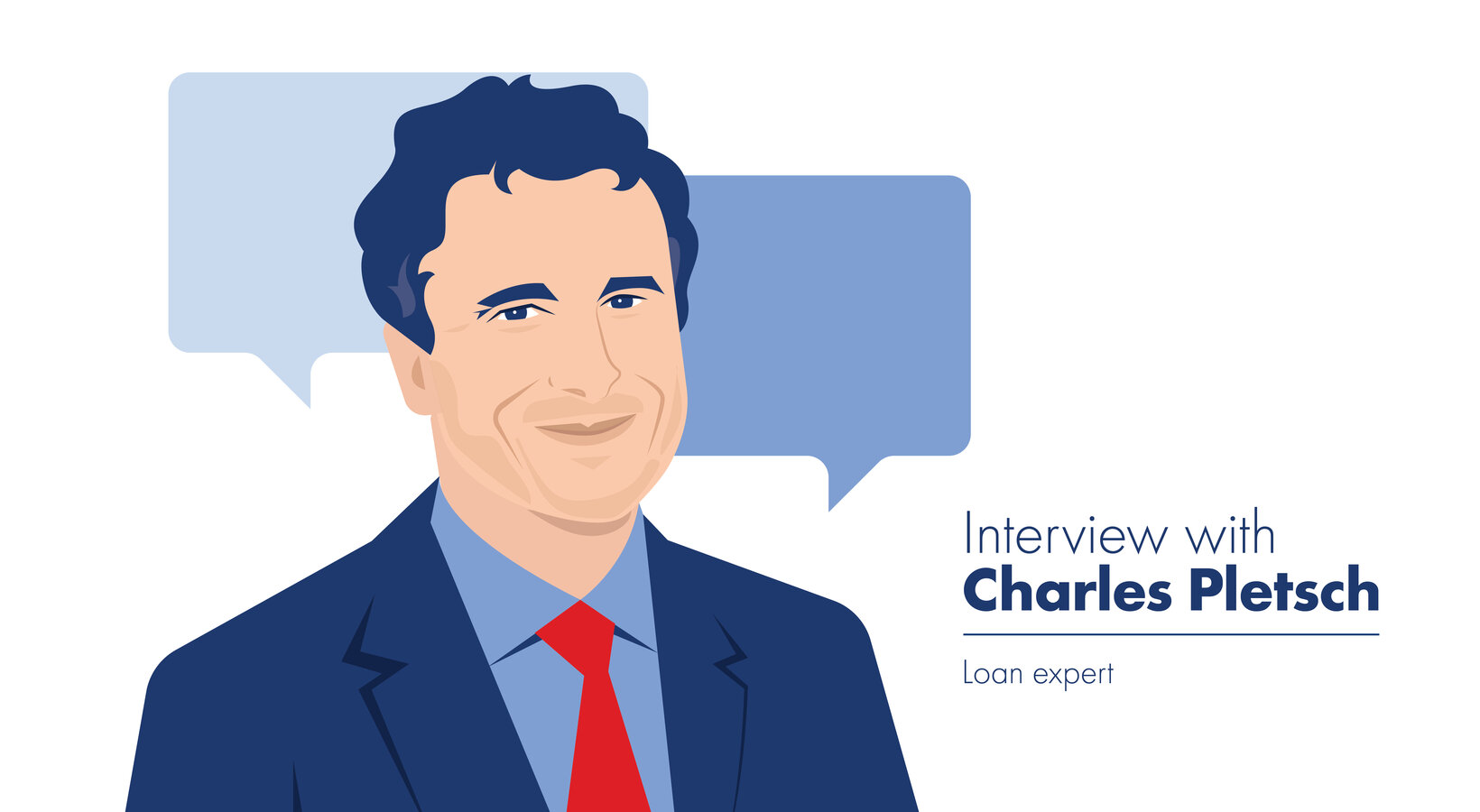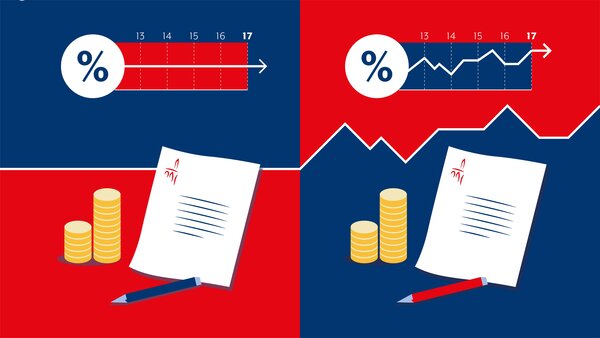Rising interest rates on home loans - 2 tips to be well prepared
Over the past weeks, the media has taken up the topic of the rising interest rates which is causing our clients to ask all sorts of questions about their loans. We’ve asked Charles Pletsch, Vice President and Head of Business Unit at Spuerkeess and housing loan expert, to share two tips on how to best manage your housing project.

Charles, why are interest rates rising now?
It’s not the banks that freely choose their interest rate levels. Banks first have to finance themselves on the markets and then depending on the financial markets situation, the rates are determined.
To ensure consistency in any bank’s management, they use the variation of these rates to fix the conditions they can offer to their clients. In the euro zone, these market rates are influenced by the policy rates fixed by the Central Bank in Frankfurt. These policy rates are going to rise and when in combination with other financial market rates, trigger an increase of the variable interest rates for home loans in Luxembourg.
And why is the Central Bank raising these policy rates?
The Central Bank's rates are an important lever of the monetary policy. In the past and in order to support economic growth, the Central Bank has lowered its policy rates and kept them very low to encourage investments and consumption.
With this approach and if combined with other monetary policy measures, the amount of money in circulation in the economy increases which in return generates more consumption and prices rise.
Once prices exceed a certain level (called inflation), the Central Bank reacts by breaking this tendency and raises the policy rates.
Clients who applied for new loans in recent months have noticed that fixed interest rates have risen and are already much higher today. How come?
By choosing a fixed interest rate, for instance over a 10-year period, clients take out a kind of insurance to protect them against future interest rate rises. Their monthly instalments, therefore, remain the same for 10 years, regardless of the volatility of the financial markets in that time.
When a bank determines the right fixed interest rate level, it must not only consider the current rates, but also the expected evolution of these rates over the next 10 years. This explains why these rates are affected as soon as there is any indication of a future rise in policy rates.
The market mechanisms are clear and we are expecting several rate increases in the coming months with a final level, hard to predict.
Our first advice is to get informed and understand the situation. You can use our online simulator to simulate your monthly instalments at different variable interest rate levels, even between 3.5% and 4.5%, as this scenario cannot be excluded. This will give you an idea on how your monthly instalments will be affected with higher interest rates and what impact it can have on household budgets.
Our second advice is to consider to switch to a fixed interest rate for a certain period. As mentioned previously, a fixed interest rate is a kind of insurance that covers you from unpleasant surprises in the years to come. Presently, these rates may seem high but variable interest rates will most certainly increase in the coming months. Our advisors are happy to help you and propose a fixed interest rate offer for your loan.
Does Spuerkeess consider the rising of the rates when analysing a loan application?
When a loan is granted, Spuerkeess always carries out a stress test to make sure the clients repayment capacity of a loan is possible even in the case of rising interest rates. Also, our Housing Advisors systematically inform our clients about the interest rate mechanisms and propose fixed interest rate alternatives.
We consider providing sound and proper advice as essential. Therefore a majority of our clients have opted for a fixed interest rate, or at least for part of their loan.

